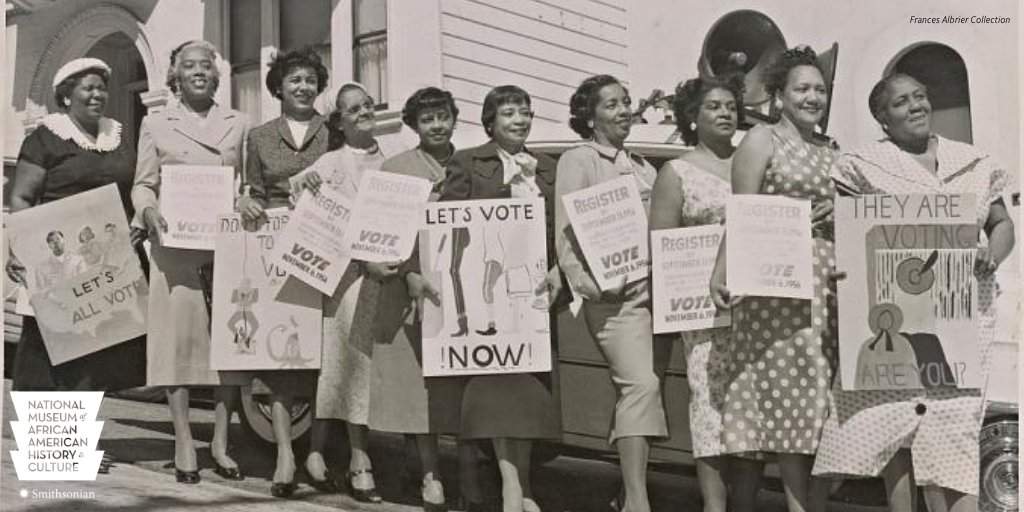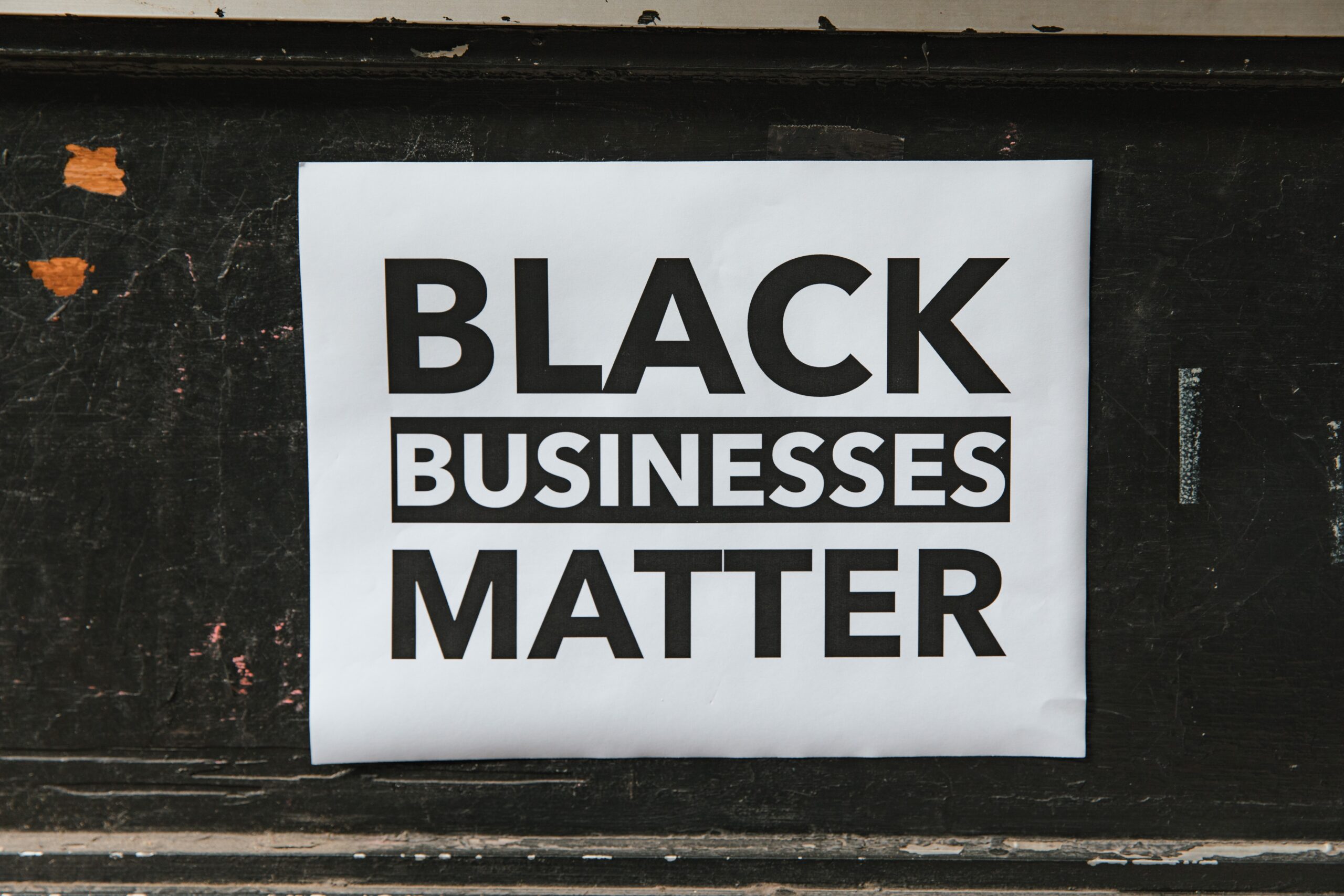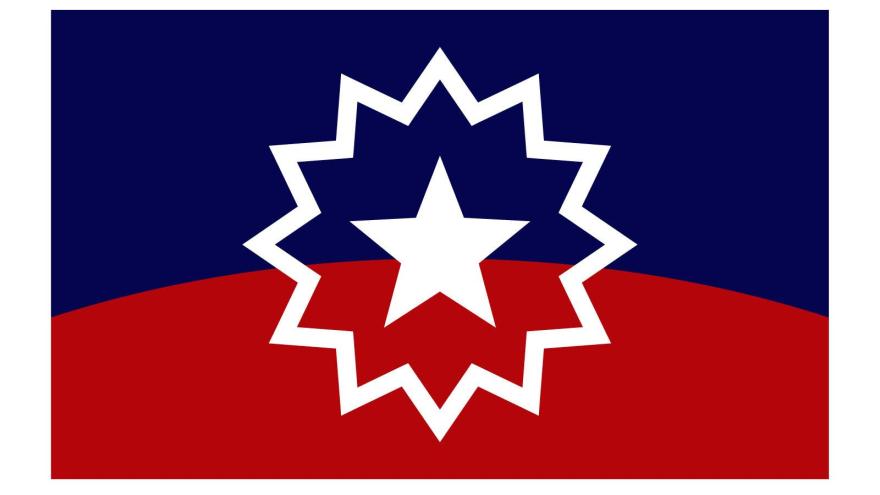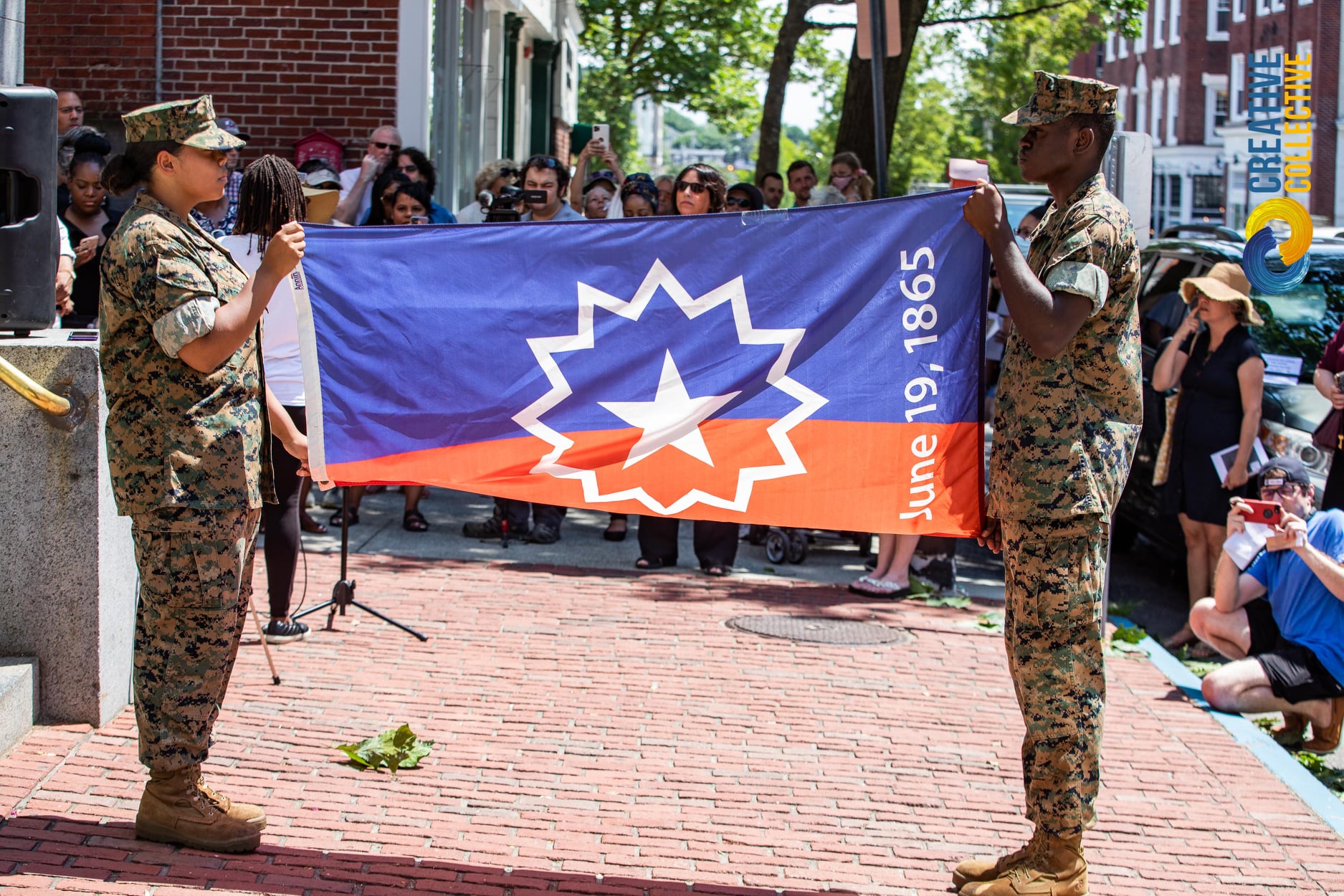

By Joey Phoenix
Cover Image from the National Museum of African American History and Culture
100 Years Ago women won the right to vote in the United States, but many will argue that with a presidential glass ceiling yet unbroken, stories of voter suppression still occurring throughout the country, and and a considerable lack of governmental representation for Black and Brown voters, disabled voters, or LGBTQ+ voters, the fight for universal suffrage is far from over.
Scroll to the bottom for a list of events and exhibitions coming up this month and through the fall discussing the history of Suffrage and Women’s history through a political lens.
So while this year, an election year, is a time to celebrate and honor the achievements of the past, it’s also important to recognize that for many Americans there is still progress to be made.


October 15th, 7pm at the Marblehead Museum
For North Shore historical organizations, part of the work includes anchoring the ongoing Suffrage movement in local history and learning about how the movement has left a lasting imprint not just on the nation, but on cities from Lynn to Gloucester and many places in between.
“What we read about in the history books, that was happening on national level is also happening on a local level,” said Lauren McCormack, Executive Director of the Marblehead Museum. “There were some people [here in Marblehead], both men and women who were very much for women’s suffrage for the right to vote, and there were some who were very much against it.”
“There isn’t necessarily one person to point to that led the movement, but rather, the movement is comprised of many individuals and their accomplishments in the 19th and 20th centuries,” said Petra Slinkard, The Nancy B. Putnam Curator of Fashion and Textiles at the Peabody Essex Museum
The Intersectionality of Women’s Suffrage
One thing that continues to emerge along with narratives about the Women’s Suffrage Movement in the late nineteenth century and into the 1920s is that this fight has been rooted in intersectionality from the beginning.
Names like Elizabeth Cady Stanton and Susan B. Anthony have been heralded in history books as champions of the movement from early on, but Black and Brown women like Ida B. Wells, Harriet Tubman, and Salem’s own Charlotte Forten Grimke, among many others, have recently become synonymous with Suffrage as well.


Unfortunately, for many of the Black women who stood alongside white women in the early days, they’ve only recently begun to get any credit for their roles in bringing about these achievements. It doesn’t help that after the 19th amendment was ratified in 1920, many Black women were threatened with bodily harm if they attempted to vote anywhere that year and for decades after.
“The fact that African American women still were not able to vote after the 19th amendment was passed [in 1920] is a part of our culture that we need to acknowledge,” said Nicole McClain, founder and president of the North Shore Juneteenth Association. “People celebrate that white women got the vote, and don’t acknowledge that Black women were in this fight with them and still weren’t able to attain that privilege.”
While the United States is slightly ahead of where it was in the 1920s, systemic and institutionalized racism and ableism still keep voting inaccessible to many voters.
Interestingly enough, this month also marks the 55th anniversary of the Voting Rights Act, which prohibited racial discrimination in voting. Representative John Lewis, who passed away this summer, was one of the early champions for the Act who called voting the “most powerful non-violent tool we have in a democracy.”
Unfortunately, what’s often overlooked when reviewing history is that while landmark legislative choices are made and have lasting impact on the makeup of a country’s politics, they mean very little unless they are properly enforced.
For example, while the Voting Rights Act technically put an end to voting-related racial discrimination, the Supreme Court decision in the 2013 case Shelby County v. Holder has unravelled some of the authority of Voting Rights Act in Southern voting districts with a history of racial discrimination by removing the essential coverage formula that the Act provided.
“The thing about Black women is that we’re Black and also women,” said Nicole McClain. “We’re [still] in this huge battle consistently for [our rights].”
Suffragist History on the North Shore Then and Now
The study of Women’s Suffrage also brings to light endless challenges women have faced throughout history, especially in regards to how the stories of influential women have been recorded and kept. The truth is that much of history is lost to obscurity in regards to the personal lives of North Shore women who were instrumental in early 20th century culture and politics.
Local historians have been able to piece together a narrative demonstrating just how strong some of these women like Caroline Emmerton – philanthropist and founder of the House of the Seven Gables Settlement House, Ann Page – educator and co-founder of the American Froebel Union, and Charlotte Forten Grimke – abolitionist and co-founder of the National Association of Colored Women really were, but so much of their stories weren’t preserved.


“[The lack of a comprehensive historical record] is one of the most frustrating things about trying to study women’s history,” said Irene Axelrod, a long time Member of the Board of Trustees at the House of the Seven Gables who frequently portrays Caroline Emmerton in tours of the historic house. Irene says she was “spoiled” by studying Abigail Adams first, a woman who left upwards of 2,000 letters behind her.
Yet, when it comes to studying recent women’s history, including the life of House of the Seven Gables Settlement House founder Caroline Emmerton, there’s surprisingly little to actually study and glean information from.
“Women’s lives weren’t important to the men around them,” said Robin Woodman, a member of the Board of Trustees at The House of the Seven Gables and co-founder and president of the Salem Historical Society who will be giving a lecture on August 26th called “Strong Women of the Gables.”
“A lot of women were brainwashed into thinking they had to protect their privacy. Martha Washington burned all her papers, Isabella Stewart Gardner burned many of her papers,” Woodman added.


Courtesy of the Marblehead Museum
This is why it’s so important that Historic organizations and museums across the North Shore like the House of the Seven Gables, the Salem Historical Society, Danvers Historical Society, the Peabody Essex Museum, the Marblehead Museum, among others have continued to search through archives, reading letters, and gathering information about the women who lived their lives during the history of Suffrage. Without proper preservation of these stories and artifacts, much more might be lost to history.
“Caroline Emmerton died in 1942. It’s not all that long ago really,” said Axelrod. “And her business papers don’t exist, which surprises me almost more than anything else. I would love to read the letters that she wrote to the people she knows.”
For the Danvers Historical Society, the primary historic focus in terms of Suffrage is on Ann Page, a Danvers resident who played a role in educating some of the women who would become Suffragists.
“In 1882, Ann Page held the Suffragists’ meeting at the Page house for the ‘purpose of forming an organization for consideration of matters of common interest, of general improvement of social intercourse,’” said Nora Whouley, the Assistant Director Of Communications for the Danvers Historical Society.
A long-time educator, Page was also instrumental in starting one of the earliest Kindergartens in the United States in 1854, inspired by the work of German educator Friedrich Fröbel. “Kids would be taught manners at the school,” said Whouley. “[Page] would shake hands with them at the end of every day, and while she would discipline them if needed, it was never aggressive nor hostile.”


While there are countless ways to tell the story of women’s history and political accomplishments, the upcoming exhibit “Made It: The Women Who Revolutionized Fashion” at the Peabody Essex Museum intends to do it with fashion.
“[Fashion] is really a place where we would have been able to use [women’s] skillsets as a means to leverage their position in society and within the industry,” said Petra Slinkard, The Nancy B. Putnam Curator of Fashion and Textiles. “There’s an opportunity for us, as a museum that focuses on art and culture, to look at the impact of women in the industry and tie it into celebration of 100 years of Suffrage.”
When asked if fashion was political, Slinkard responded quickly, “Absolutely.”
A Glass Ceiling, A Steep Hill to Climb
When the 19th Amendment to the Constitution was ratified 100 years ago today on August 19, 1920, women had won the right to vote, fundamentally shaping the direction United States politics would take. And for many women at that time the learning curve was steep, and the barriers to entry still built quite high.


Excerpt from the Marblehead Messenger, August 1920
Courtesy of the Marblehead Museum
“Women were asking: ‘How do I do it? What does that even mean? What does it mean to all of a sudden have this right to citizenship?,” said Lauren McCormack. “So the Essex County League of Women’s Voters took it upon themselves to see the writing on the wall and educate women on how to actually vote.
“It’s taken for granted that women just know how to do these things when they actually needed to be taught,” she said.
But once women were able to vote and learned how that could affect the quality of their lives, things started to change rapidly.
“[Voting] changes the way you’re a citizen,” added McCormack.
For Irene Axelrod, whose first voting experience in 1972 was arguably one for the history books in its own right, there were additional challenges “In those days, you had to be 21 to vote. I was already a married woman and a mother at that point, but too young to vote. It was really ironic.
“I am proud to say I cast my first primary vote for Shirley Chisholm. I hoped that she would go further but you know, the time was not right, but, you know, hopefully, things will change. I would like to be around long enough to see a woman president.”
This year is an election year, and many argue that the struggles of the 1920s continue even now 100 years later. Until all American citizens not only have the right to vote but have that right protected and safeguarded by regional legislation, universal Suffrage is still far off.
Nicole McClain of the North Shore Juneteenth Association believes that these challenges don’t just matter on election day, but extend to the education about the legislative process and in reducing the barriers to entry in how people can register to vote.
“There needs to be more access to information about even registering to vote as part of the universal voting process,” said McClain. “I deeply feel like the lack of inclusion, like this communication is only meant for a certain group of people.”
Events Commemorating and Discussing Women’s Suffrage
- “Ladies Day, The Musical!” – North Shore Players – August 20 @ 6:30 pm – 8:30 PM
- “Strong Women of The Gables,” Presented via Zoom by Robin Woodman of Harvard University – The House of the Seven Gables, August 26 @ 6:30 PM – 8:00 PM
- “Short Skirts, Oh My! The Story of Women’s Rights,” a program led by Anne Barrett – Marblehead Museum – October 15th @ 7:00 PM
- “Made It: The Women Who Revolutionized Fashion” – Exhibit on View at the Peabody Essex Museum November 21, 2020 to March 14, 2021
Joey Phoenix is the Managing Editor of Creative North Shore and the Digital Content Manager for North Shore Pride. Please send story ideas and pictures of cuttlefish to joeyphoenix@creativecollectivema.com or @jphoenixmedia on Twitter.







